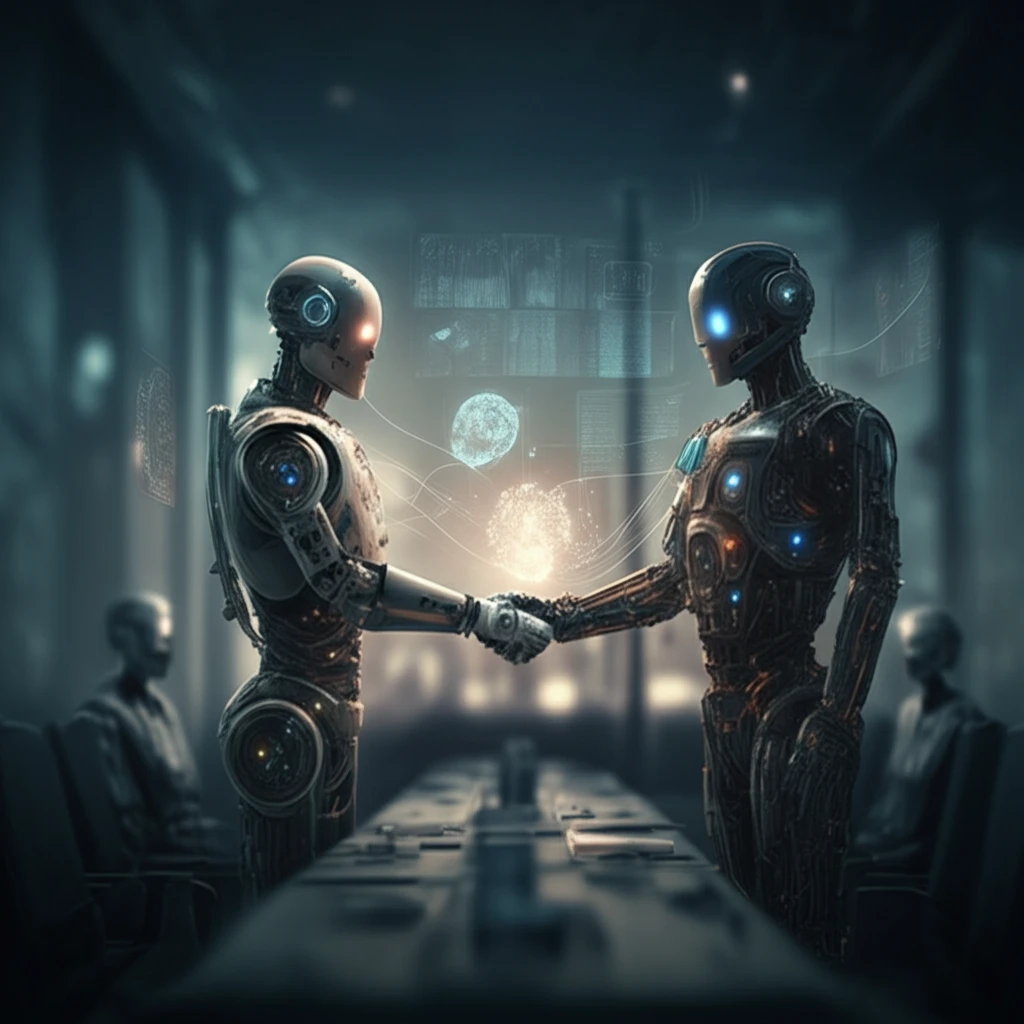
Can AI Learn to Negotiate? Exploring the Future of Algorithmic Bargaining
"Discover how reinforcement learning is shaping the next generation of artificial intelligence, impacting everything from business deals to everyday interactions."
Imagine a world where artificial intelligence doesn't just follow instructions but understands the nuances of negotiation. In recent years, AI has made incredible strides, moving beyond simple calculations to complex decision-making. One of the most intriguing developments is the use of reinforcement learning to teach AI algorithms how to negotiate effectively.
Negotiation, at its core, is about strategic communication and understanding the other party's interests. It involves reading between the lines, making concessions, and finding common ground. Traditionally, these skills have been seen as uniquely human. However, researchers are now demonstrating that AI can learn these skills through a process of trial and error, much like humans do.
This article explores how reinforcement learning algorithms are being developed to play negotiation games, adapt to different scenarios, and even converge on mutually beneficial agreements. We’ll delve into the pioneering work of researchers who are simulating these interactions and uncovering the potential for AI to revolutionize how we communicate and collaborate.
How Does AI Learn to Negotiate?

The key to AI negotiation lies in reinforcement learning, a type of machine learning where algorithms learn to make decisions by receiving rewards or penalties. Think of it as training a dog: when the dog performs a desired action, it gets a treat; when it doesn't, it receives a correction. Over time, the dog learns to associate certain actions with positive outcomes and adjusts its behavior accordingly.
- Defining the Game: The AI is placed in a game-like scenario with clear rules and objectives.
- Trial and Error: The AI tries different actions, each leading to a specific outcome.
- Feedback Loop: The AI receives feedback in the form of rewards or penalties based on the outcome.
- Adaptation: The AI adjusts its strategy based on the feedback, learning what works and what doesn't.
- Convergence: Over time, the AI converges on a strategy that consistently yields positive results.
The Future of AI in Negotiation
As AI continues to evolve, its ability to negotiate will likely become more sophisticated and widespread. From automating business deals to resolving everyday conflicts, AI negotiation has the potential to transform how we interact and collaborate. While the idea of machines negotiating on our behalf may seem unsettling, it also opens up exciting possibilities for more efficient, equitable, and mutually beneficial outcomes. Embracing this future requires understanding both the capabilities and limitations of AI, and developing strategies to ensure that these technologies are used responsibly and ethically.
